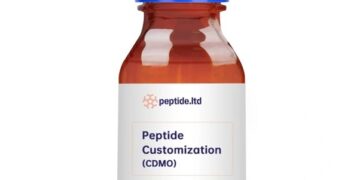In today’s digital retail landscape, seamless integration of retail operations with production is vital for increasing ROI. The role of retail testing services is key in several areas. It ensures the functionality, reliability, and performance of retail systems and software. From managing inventory to customer engagement, testing services help manufacturers in various aspects. This includes reducing costs, consistent quality, and boosting operational efficiency.
In this blog, you will find out how retail testing services improve the manufacturing processes. It will also make clear how the retail software testing services help the manufacturers to align with the market demands and increase ROI.
What is Retail Testing?
Retail domain testing is the systematic process for analyzing several aspects of retail operations. It includes systems, products, customer interactions, and processes. This helps in identifying and addressing possible areas for improvement.
Importance of Retail Testing Services
When it comes to modern retail operations, the role of retail testing services is crucial. Investing in retail software testing services will help retailers. It will help them stand out from the competitive marketplace. This helps them deliver a unique customer experience while attaining customer success.
Retail domain testing helps retailers with identifying and resolving certain issues. This will help make the customer’s journey smooth. It includes payment processing errors, website malfunctions, or system glitches. This creates a hassle-free and positive customer experience. Thus, increasing customer loyalty.
Retail application testing services help make sure that the products meet the desired quality standards. This helps the retailers to identify malfunctions, inconsistencies, or defects in the products. Retail app testing also allows the retailers to solve product issues. Additionally, it will also help in delivering top-quality products to the customers.
Ideal software testing in retail domain ensures smooth functioning of many things. It includes supply chain logistics, inventory management, point-of-sale systems, etc. This helps the retailers to identify and address bottlenecks or inefficiencies. Thus, resulting in reduced costs, simplified operations, and improved efficiency.
Key Areas of Retail Testing Services
Let’s explore the key areas where retail testing services ensure seamless operations and exceptional customer experiences.
1. Physical Testing
- Durability Testing
This software testing in retail domain evaluates product resistance to wear and tear. It includes impact, stress, and fatigue tests.
- Environmental Testing
Retail application testing assesses product performance in several scenarios. This consists of humidity, temperature extremes, and exposure to UV.
- Mechanical Testing
This software testing in retail domain measures several aspects. It includes stiffness, strength, and other mechanical properties of the product.
2. Chemical Testing
- Material Composition Analysis
Identifying the chemical composition of materials used in product manufacturing.
- Toxic Substance Screening
This retail domain testing detects harmful substances that might be in products.
- Flammability Testing
Evaluating product flammability and fire resistance properties.
3. Electrical Testing
- Electrical Safety Testing
This testing ensures compliance with electrical safety standards. It includes insulation resistance, dielectric strength, and leakage current tests.
- EMC Testing
Assessing product electromagnetic compatibility. This is for reducing interference with other electronic devices.
4. Performance Testing
- Functional Testing
Verifying product functionality and performance that meet the required specifications.
- Reliability Testing
Evaluating product reliability and durability over time.
- User Experience Testing
Assessing product usability and user satisfaction.
5. Strategic Planning
- Identify Critical Testing Needs
Prioritize testing efforts based on several aspects. This includes product complexity, risk factors, and regulatory requirements.
- Select the Right Testing Partner
Choose the ideal retail software testing services partner with a proven track record. Additionally, ensure that they have years of industry experience.
- Develop a Comprehensive Testing Plan
Develop the scope of testing, timelines, and resource allocation.
6. Efficient Testing Execution
- Utilized Advanced Testing Technologies
Make use of automation and data analytics to simplify the testing process. This also helps in reducing costs.
- Effective Collaboration with Retail Testing Services Partner
Clear communication and constant updates to ensure efficient project execution.
- Monitor and Control Testing Costs
Implement cost-saving measures. This includes consolidating testing activities and optimizing resource utilization.
7. Data-Driven Decision Making
- Analyze Test Results
Use data-driven insights to find out the areas for improvement. Not only this, but it also helps in making better decisions.
- Deploy Corrective Actions
Retail testing services take prompt action to resolve the defects or problems identified in the software.
- Monitor Product Performance Constantly
Conduct ongoing retail testing services to ensure reliability and quality for the long term.
Retail Testing Techniques for Maximizing ROI
When it comes to maximizing ROI, retail testing techniques focus on ensuring many system aspects. It includes efficiency, reliability, and scalability to drive operational excellence and profitability. Some of the retail testing techniques are:
Functional Testing
Ensures systems operate according to specifications. This verifies everything from POS transactions to CRM workflows.
Performance Testing
Retail software testing services validate system performance under various loads. Thus, ensuring they can handle high transaction volumes without delays.
Security Testing
Identifies vulnerabilities in systems handling sensitive customer and business data. It also protects against breaches and ensures compliance.
Integration Testing
Ensures seamless communication between interconnected systems. It includes ERP and inventory management platforms.
Automation Testing
Automates repetitive testing tasks, saving time and reducing human errors. Automation is particularly beneficial for regression testing in frequently updated systems.
User Acceptance Testing (UAT)
It involves end-users to validate that systems meet real-world requirements. Thus, ensuring they deliver value and usability.
Future Trends in Retail Testing for Manufacturing
Future Trends in Retail Testing for Manufacturing focuses on emerging technologies and methodologies. It enhances efficiency, security, and adaptability in the constantly changing manufacturing-retail scenario.
Here are some of the future trends in the manufacturing-retail scenario:
AI-Driven Testing
AI and machine learning will enable predictive testing. Thus, identifying potential issues before they occur.
IoT Testing
IoT devices play a key role in supply chains and retail. As a result, testing will focus on ensuring their reliability and security.
Blockchain Validation
Testing blockchain-based systems is essential to ensure transparency and traceability.
Cloud Testing
As of now, more systems are migrating to the cloud. Thus, testing will focus on ensuring scalability, security, and seamless operation in cloud environments.
How to Overcome Retail Testing Challenges in Manufacturing
Overcoming retail testing challenges in manufacturing is quite a challenging task. Some key techniques for this are:
Complex System Integrations
Manufacturers use a wide range of systems for their processes, which might have some challenges. Retail testing services address this challenge by focusing on integration and end-to-end testing.
Evolving Market Demands
The retail landscape is constantly changing with new technologies and customer expectations. Software testing in retail domain stays updated to ensure systems meet future demands.
Data Security Concerns
With increasing cyber threats, retail testing services prioritize robust security measures. Retail domain testing ensures sensitive data is secured.
Time and Cost Constraints
Manufacturers often face tight deadlines and budget limitations. Retail testing services optimize their processes with automation and risk-based testing to deliver quality within constraints.
Final Takeaway
Effective retail app testing helps retailers to achieve success in the competitive marketplace. Leveraging the power of technology, data, personalization, multichannel approaches, etc., will help retailers to make strategic decisions. Thus, improving customer satisfaction, driving revenue growth, and maximizing their ROI.
Now, are you looking for comprehensive retail testing services in manufacturing? Then choosing Qualitest would be the best option. They have years of experience working on diverse projects, such as the cutting-edge testing solution for a retailer’s credit solution migration. This includes system migration, operational acceptance, integration, and more.





























